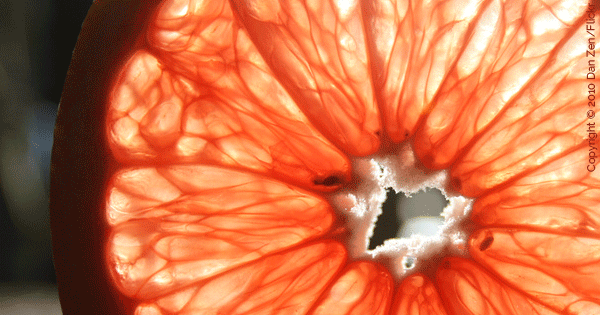Subtle changes in your body can be huge signals--but what's just an ache from yesterday's workout and what's a signal you're vitamin deficiency? Is it just dry skin from winter months, or something else?
“With today’s diet of processed foods it’s easy to become vitamin deficient — either by not eating enough of the right foods or not absorbing them properly due to digestive issues,” says Dr. Susan Blum, founder of the Blum Center for Health and author of the new book, The Immune System Recovery Plan. “You may not get a disease but you can end up with impaired functioning, because vitamins are co-factors for all the bio-chemical reactions in the body. We need them in order to function properly.”
There is some good news in all this; with some simple dietary tweaks, you could easily fix a lot of these vitamin deficiencies--no pills necessary!
1. Cracks in the corner of your mouth. This signals a deficiency in iron, zinc, and B vitamins like niacin (B3), riboflavin (B2), and B12. “It’s common if you’re a vegetarian to not get enough iron, zinc, and B12,” Blum says. That goes double if you're skipping essential immunity-building protein when you are dieting. To get a good dose, try eating more eggs, chicken, salmon, tuna, eggs clams, sun-dried tomatoes, Swiss chard, tahini, peanuts, and legumes like lentils.
2. A red scaly, rash on your face or hair loss. This could signal a lack of the "hair vitamin" Biacin (B7). While vitamin D, E, K, A, are fat soluble and therefore stored in the body, vitamin B is not--it needs to be constantly replenished. Eat more cooked eggs, salmon, avocados, mushrooms, cauliflower, soybeans, nuts, raspberries, and bananas.
3. Red or white acne bumps on the cheeks, arms, thighs, or back-side. Essential fatty acids and vitamins A and D. Try eating more fish, nuts, and seeds. "For vitamin A, pile on leafy greens and colorful veggies like carrots, sweet potatoes, and red bell peppers. “his provides beta carotene, a precursor to vitamin A, which your body will use to make vitamin A,” Blum says. “For vitamin D, though, I recommend a supplement—2,000 IU a day in one that also contains vitamins A and K, which help with D absorption.”
4. Numbness or tingling in the hands, feet or legs. B vitamins like folate (B9), B6, and B12. “It’s a problem directly related to the peripheral nerves and where they end in the skin,” says Blum, noting that these symptoms can be combined with anxiety, depression, anemia, fatigue, and hormone imbalances. Try eating more spinach, asparagus, beets, beans, eggs, octopus, mussels, clams, oysters, and poultry.
5. Muscle cramps that feel like stabbing pains in the toes, calves, arches of feet, and backs of legs. You are most likely missing magnesium, calcium, and potassium. “If it’s happening frequently, it’s a tip-off that you’re lacking in these,” Blum says. You can lose more minerals through sweat during heavy workouts, as well. Try eating more bananas, almonds, hazelnuts, squash, cherries, apples, grapefruit, broccoli, bok choy, and dark leafy greens like kale, spinach, and dandelion.
What do you think about these five signals? Do you experience any of these? Let us know what you think in the comments!
Copyright © 2010 Dan Zen/Flickr





